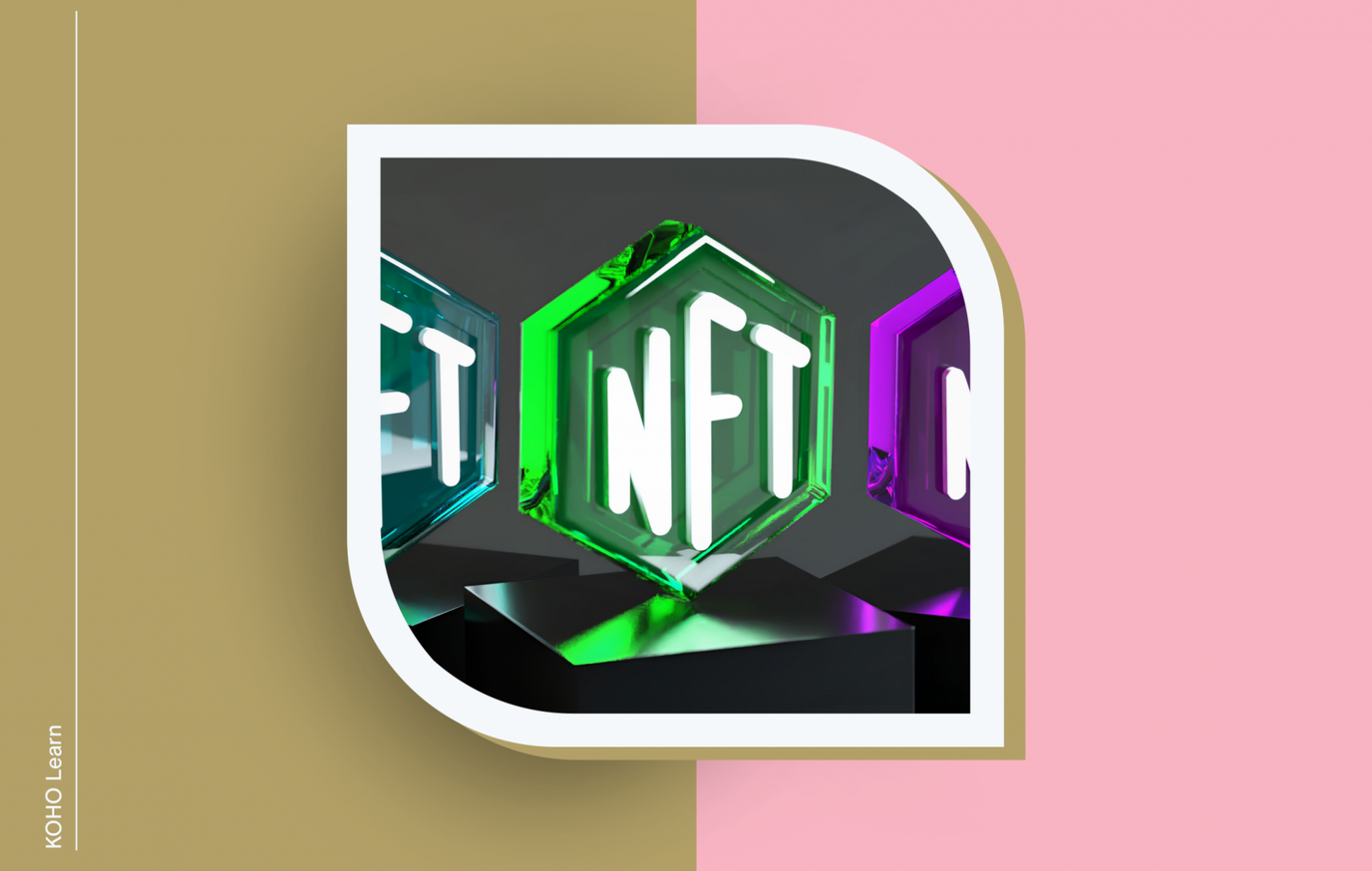
Rounding it up
Most NFTs are taxable in Canada when you sell them.
The amount of tax that you’ll pay depends on a lot of factors, including whether you’re selling NFTs as a personal investment or as part of a business.
Digital asset taxation is new in Canada, so laws and regulations may change in the coming years.
It’s always best to consult a qualified accountant who understands digital asset taxation to ensure that you’re not over or underpaying at tax time.
NFTs, or non-fungible tokens, are one of the biggest new things to rock the cryptosphere in recent years. They offer you the chance to own a unique copy of digital artwork and to invest in a potentially hot new asset class, all at the same time.
But, despite all their potential benefits (and risks), the question remains: Are NFTs taxable in Canada?
The TL;DR answer to this is, yes, most NFTs are taxable in Canada when you sell them. However, Canadian tax laws—particularly when it comes to digital assets like NFTs and crypto—are complex.
Coming up, we’ll take a closer look at the hows, whats, whens, and whys of NFT taxes in Canada.
Are NFTs taxable in Canada?
Long story short, yes, NFTs are taxable in Canada.
But, this statement is a major oversimplification of how Canadian law taxes digital assets. The reality is that Canadian tax law doesn’t directly address the issue of whether NFTs are taxable. Therefore, the best way to understand how and whether NFTs are taxable in Canada is to look at how the CRA (Canada Revenue Agency) handles crypto transactions.
According to the CRA, cryptocurrencies are taxable as a commodity, not as legal tender. This means that, even though many cryptocurrencies are designed to mimic fiat currencies (that’s a national currency, like the Canadian dollar), they’re actually more akin to gold or ETFs for tax purposes. The CRA effectively treats NFTs the same way.
While this may seem like a minor distinction, it has a sizable impact on how you calculate and pay your taxes.
For most people, treating NFTs as a commodity means that you’ll pay capital gains tax on any financial gains that you earn when you sell an NFT. There are a few exceptions to this rule, but most people who sell NFTs for investment purposes will find that capital gains taxes are what they need to focus on come tax time.
How Are NFTs Taxed in Canada?
At this point, we’ve established that NFTs are, indeed, taxable in Canada in many situations. But how exactly does the CRA go about deciding whether your NFTs are taxable? And if your NFTs are taxable, how does the CRA determine how much you owe on your digital assets?
Let’s take a closer look at the things you need to consider when determining whether your NFTs are taxable.
Types of taxable NFT Transactions
First things first: it’s important to realize that not all NFT transactions are taxable. Again, the CRA doesn’t give us much guidance on the specifics of NFT taxation, so we have to extrapolate a lot of this information from how Canada taxes cryptocurrencies. But, the general idea is that NFTs are taxed when you do the following:
Sell NFTs for either fiat or cryptocurrency
Trade NFTs for other NFTs
Gift NFTs to someone else
Buy goods or services using an NFT
In many ways, the types of NFT transactions that are taxable in Canada are the same as the types of stock or bond transactions that are taxable. The CRA effectively only taxes your NFTs when you realize some sort of profit from your digital assets, either by selling them for fiat or cryptocurrency or by trading them for some other commodity.
The exception to this comes when you gift NFTs to someone else. Canada technically doesn’t have a gift tax when you gift property (including NFTs) to family members. But gifting an NFT can occasionally trigger a capital gains tax. The taxation of gifts in Canada is very complicated, so it’s best to discuss your situation with a qualified accountant.
However, we want to point out two situations where NFTs aren’t taxed: at the point of purchase and when they’re simply sitting in your digital wallet.
Unlike something you can buy in a store, like clothing or jewelry, NFTs aren’t currently subject to sales taxes like GST, HST, or PST. So, you generally don’t have to pay taxes when you buy NFTs.
Additionally, like stocks, there’s no tax on NFTs if they’re just sitting in your digital wallet. In this situation, your NFTs are basically like stocks in your brokerage account. They can gain or lose value all they want, but you won’t have to pay taxes on them until you sell them for a profit.
Capital gains vs business income
Up until now, we’ve discussed how NFTs are taxed in Canada, but only from the perspective of capital gains. Or, in other words, we’ve only talked about how NFTs are taxed when you treat them like an investment.
For most people, NFTs are an investment. However, some people buy, sell, and create NFTs as part of a business. In these situations, any profit from NFT sales or transactions would be classed as business income.
The distinction between capital gains and business income taxes is a big one. This is driven in part by the fact that only 50% of capital gains on the sale of an asset, like an NFT, is taxable. Meanwhile, 100% of business income is taxable, and often at a higher rate.
The problem is that differentiating between capital gains and business income can be challenging for some investors. Unfortunately, the CRA doesn’t provide too much guidance about how to determine whether the sale of NFTs or crypto is business income. It all comes down to your personal situation.
But there are a few factors that tax lawyers might consider to determine whether your NFT sales qualify as a business venture. These include:
Frequency of NFT transactions – If you have a long history of buying and selling NFTs, the CRA might view your profits as business income.
Turnover time – Most NFT investors plan to buy and hold their digital assets for many years. Meanwhile, people who are conducting an NFT business might buy NFTs only to quickly turn around and sell them.
Experience with NFT markets – There are plenty of NFT-savvy personal investors out there, but someone who’s trading NFTs for a business probably has extensive knowledge about how it all works.
NFT trading financing – Some people who run NFT-related businesses will buy their NFTs using loans and other financing methods. You can access these financial tools for personal trades, too, but doing so isn’t common.
Similarity to other employment – If you’re someone who already works in an NFT-adjacent industry, like in cryptocurrencies or securities, the CRA is more likely to consider your NFT sales to be part of a larger business.
NFT advertising – Creating advertisements or other promotional materials about the NFTs that you’re trying to sell is a major sign to the CRA that you’re doing so for business purposes.
Again, this list is non-exhaustive and every determination of whether you owe capital gains or business income taxes on your NFTs is made on a case-by-case basis.
Your initial intention when you buy and sell NFTs is what’s most important here. But if you find yourself in a sticky legal situation, it’ll be up to tax lawyers and courts to determine your intentions using objective facts. When in doubt, always consult a qualified tax lawyer.
NFT values for tax purposes
Arguably the most difficult thing about NFT taxation is figuring out how much an NFT is actually worth for tax purposes.
Unlike cryptocurrencies, like Bitcoin, NFTs don’t have a well-accepted exchange rate with fiat currencies. This is potentially problematic when you’re trying to determine your taxes because Canadian taxes need to be paid in Canadian dollars, not crypto.
Thankfully, NFTs are generally only taxable when you sell them. Therefore, even though there isn’t a standard “going price” for a given NFT, the taxes you’ll pay will generally be calculated off of the selling price of the NFT.
So, if you sold an NFT for 5 Ethereum (ETH), you would base your owed taxes off of the conversion of 5 ETH to Canadian dollars at the time of your sale.
SPEND SMARTER. SAVE FASTER
Things get a bit trickier when you’re trying to determine the value of your transaction when you trade one NFT for another or when you buy goods and services with an NFT. The CRA doesn’t give any great guidance on how to deal with taxes in these specific situations, but its rules on barter transactions generally apply.
In these situations, you normally have to figure out the fair market value of your NFT at the point of sale. This can be challenging because NFTs are so new. Therefore, it’s best to consult a tax lawyer if you have any questions.
NFTs and Canadian taxes: it’s complicated
Like most digital assets, NFTs are pretty darn complicated when tax season rolls around. You generally only have to pay taxes when you sell NFTs for a profit or when you trade them, but determining precisely how much you’ll pay isn’t easy.
As is the case with all things tax-related, it’s best to discuss your specific situation with a tax lawyer or accountant that understands the ins and outs of digital assets. Also, keep in mind that Canadian tax law is constantly evolving, so the CRA can change how it taxes NFTs at any time.

About the author
Gaby Pilson is a writer, educator, travel guide, and lover of all things personal finance. She’s passionate about helping people feel empowered to take control of their financial lives by making investing, budgeting, and money-saving resources accessible to everyone.
Read more about this author